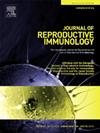类固醇激素在各种寄生虫感染中的作用综述
IF 2.9
3区 医学
Q3 IMMUNOLOGY
引用次数: 0
摘要
激素、神经肽、神经递质和细胞因子之间有着密切的关系,它们通过各种效应机制(包括体液免疫和细胞免疫)改变宿主的免疫反应。这种沟通平衡的中断会导致感染或更容易感染疾病。寄主与寄生虫之间的关系是复杂的,存在着重要的交流、相互作用和生化共同进化。在寄生虫感染中,各种激素的作用已得到证实,也有关于寄生虫激素直接作用的报道。许多寄生虫分泌影响宿主免疫和生理反应的分子,包括媒介和媒介。相反,寄生虫分泌各种因子来改变宿主的激素水平。在少数情况下,寄生虫的状态激素有消极和积极的影响。另一方面,这种影响是通过宿主的免疫系统间接介导的。在脊椎动物中,寄生虫的发生也对宿主的内分泌状态和一套由激素控制的正常过程产生主要影响。这一过程包括寄主生长、建立、转化和繁殖。因此,考虑免疫内分泌变异的机制及其对寄生虫的影响,对于开发新药、寻找疫苗靶点和发明治疗多种感染的新疗法至关重要。与女性相比,男性通常更容易感染寄生虫病。这些性别分化可以反映睾酮的抑制特性和雌二醇对免疫功能的过度影响。对于定义t细胞驱动免疫,螺旋体感染是一个完美的模型,也提供了关键的愿景,可以影响潜在的蠕虫治疗目前正在开发。相互冲突的宿主变量调节了这种治疗的效率,并已认识到宿主来源的性类固醇激素是免疫力增长的主要因素。本研究将循环类固醇激素作为一种免疫调节剂在各种寄生虫病中的作用分类。本文章由计算机程序翻译,如有差异,请以英文原文为准。
An overview of the role of steroid hormones in various parasitic infections
There is a close relationship among hormones, neuropeptides, neurotransmitters, and cytokines that modify the host immune response through various effector mechanisms, including both humoral and cellular immunity. Interruption of this communication balance leads to infection or greater vulnerability to disease. The relationship between host and parasite is complex, and there is significant communication, interaction, and biochemical co-evolution. In parasitic infection, the role of various hormones has been proven and there are also reports on parasites the direct effect of hormones. Numerous parasites produce the secretion of molecules that affect the immunological and physiological responses in the host, including intermediaries and vectors. In contrast, the parasite secretes various factors that change the hormone host levels. In a few cases, the parasite's status hormones have negative and positive influences. On the other hand, the influences are indirectly intermediated through the host’s immune system. In vertebrates, the occurrence of parasites also has a main effect on the host endocrine status and a normal suite of processes ruled through hormones. This procedure comprises host growth, establishment, transformation, and reproduction. Therefore, considering the mechanism involved in immuno-endocrine variation and its influences on parasites is critical for emerging new drugs, vaccine target finding, and inventing new therapies for numerous infections. Males are usually more vulnerable to parasitic diseases as compared to females. These sex differentiation can reflect the suppressive properties of testosterone and the excessive effects of estradiol on immune function. For defining the T-cell-driven immunity T. spiralis infection is a perfect model and also provides the crucial visions that can affect potential helminths therapies currently in development. Conflicting host variables regulate the efficiency of such treatment and have recognized the host-derived sex steroid hormones as the main factor in the growth of immunity. This study categorized the role of circulating steroid hormones as an immune regulator in various parasitic diseases.
求助全文
通过发布文献求助,成功后即可免费获取论文全文。
去求助
来源期刊
CiteScore
6.30
自引率
5.90%
发文量
162
审稿时长
10.6 weeks
期刊介绍:
Affiliated with the European Society of Reproductive Immunology and with the International Society for Immunology of Reproduction
The aim of the Journal of Reproductive Immunology is to provide the critical forum for the dissemination of results from high quality research in all aspects of experimental, animal and clinical reproductive immunobiology.
This encompasses normal and pathological processes of:
* Male and Female Reproductive Tracts
* Gametogenesis and Embryogenesis
* Implantation and Placental Development
* Gestation and Parturition
* Mammary Gland and Lactation.

 求助内容:
求助内容: 应助结果提醒方式:
应助结果提醒方式:


